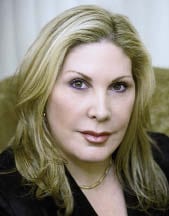 |
By Wendy Lewis
Skincare consumers are a savvy and fickle bunch indeed. Physicians and skincare professionals commonly lament that patients sometimes consult with them for advice on what products to use and how to use them, yet are often lured by lower pricing online from Amazon and eBay, or daily deal sites like Groupon and countless others.
I recently attended a luncheon at a private club in Palm Beach, Fla. All of the women at my table were in their 60s and older who could well afford to buy whatever skincare products their hearts desired. They were anxious to find out what I was using myself, and I shared some of my favorite brands and products with them. Then one of the ladies asked, “Can I get that at Costco?”
Enough said.
Building a retail vertical in a cosmetic practice involves a lot more than just bringing on a few products and displaying them at the front desk. Consumers are looking for a customized program, education, and expert advice from a source they trust that is specifically for them—added values that they cannot get online or at the typical skincare retailers.
 |
 |
 |
| The revenue generated can be considerable, when you acknowledge that most physicians are likely selling products at a 100% markup, and even higher for private label products. | ||
PRODUCT SELECTION
Most practices today offer a selection of several skincare brands to their patients, but they do not necessarily carry the whole range from any brand. Best-selling products are often the “go to” products recommended by the physicians and aestheticians in the practice. In my experience, this is especially true with female practitioners. Their patients are eager to know what they use on their skin so they can follow a comparable regimen.
|
All in One? |
|
Market researchers at Mintel cite multifunctional products as leading the growth in the skincare market, as nearly four out of 10 consumers seek products that offer multiple benefits. They also point to cleansers and moisturizers for dry skin as the most popular categories, and improving skin texture as an important trend to consider. |
According to New York City dermatologist Ellen Marmur, MD, “We currently sell 10 different brands and 60 products. Our best-selling categories of products are sunscreens.” Among those 60 products, Marmur points out, her three top sellers are Previse Nutrify, Previse Purify, and SkinCeuticals Physical Fusion UV Defense.”
At Sanctuary Plastic Surgery, a large group practice in sunny Boca Raton, Fla, Cheryl A. Staurowsky, lead aesthetician for plastic surgeon Jason Pozner, MD, relates that it sells approximately six brands. Anti-aging and pigment control products are its best-selling categories, and its three most popular products are PCA Skin Weightless SPF 45, Neocutis® Lumiere Eye Cream, and ZO® Medical Brightenex.
According to dermatologist Heidi Waldorf, MD, who has a practice in New York City as well as in Rockland County, NY, “We sell about 10 brands, but not the full line of any of them. Our best sellers are sunscreens, cleansers, and moisturizers.” Also in New York City, dermatologist Ron Shelton, MD, dispenses 13 brands and reports that the best-selling categories in his practice are rejuvenation and moisturizers. “Our three best-selling SKUs are SkinMedica® TNS Essential Serum, SkinMedica® TNS Ceramide Treatment Cream, and Sinecch™ Arnica Montana,” Shelton says.
Dermatologist Vivian Bucay, MD, who practices in San Antonio, has a thriving retail vertical in her practice. She dispenses a long list of top cosmeceutical brands that she hand picks with care. “I don’t promote brands. I promote skincare strategies tailored to the patient’s specific needs,” she says. “We probably sell more sunscreen than any other single item, but because I encourage patients to be on skincare regimens, our best-selling indications are photodamage and melasma and hyperpigmentation.” As of today, Bucay’s three best sellers are SkinMedica’s Lytera system, Elta MD® sunscreens, with Biopelle and Precision MD (Celfix DNA Youth Recovery) running neck and neck.
Flor Mayoral, MD, a dermatologist at the Mayoral Dermatology Group in Coral Gables, Fla, has a robust retail vertical in her practice featuring about 50 products from 10 brands, give or take. “Anti-aging is our best-selling category of products, and our three top-selling brands are Elta MD, Bonapelle [Mayoral’s own proprietary line], and SkinCeuticals,” she says.
|
Go Online or Go Home?
|
|
Devoted skincare and sunscreen buyers are much more inclined to engage in online and mobile activities than the average adult consumer, according to recent research from the Interactive Advertising Bureau (IAB). They are also more influenced in their beauty purchases by online ads than the average consumer (29% versus 15%). The IAB Summer Skincare Digital Report revealed some interesting trends in consumer skincare and suncare shopping behavior.
The report also confirmed that frequent buyers of skincare and suncare products are heavily immersed in digital media and that they are heavier mobile app users than the typical population, with 76% purchasing apps versus 57% of the general population.
|
AESTHETICIAN ON BOARD
Having a dedicated nurse, medical aesthetician, or physician’s assistant on board in a dispensing practice is a definite plus. Skincare consultations take time away from other activities within a busy dermatology or plastic surgery practice. Having a skin professional or several who are well versed in the products and knowledgeable about skin physiology serves to boost sales and maintain patient satisfaction.
This role tends to vary from practice to practice. For example, Marmur and her physician assistant, Laura Cortelyou, both fulfill this function. At Sanctuary Plastic Surgery, Staurowsky and her fellow aestheticians are collectively responsible for patient product sales and skin consults.
Waldorf takes a more conservative approach. “As a dermatologist, I am the expert in the skin, hair, and nails, and therefore the one who recommends skincare products in my office,” she says. “After a decade or more, my nurses have learned a lot from me and have a sense of what I will recommend. We have no aestheticians on staff, and no one gets a commission for selling products.”
Bucay agrees, although she does have an aesthetician who also performs treatments. “As a dermatologist, patients often want a recommendation directly from me. I have very specific skincare regimens based on indications, and I am always educating our staff on indication-based regimens. It’s not just about one product.”
For Mayoral, skincare consulting and product recommendations are a team effort. “We do have an aesthetician, and in combination with the other providers on staff, we all offer skincare advice to patients,” she says.
 |
PRODUCT AND TREATMENT BUNDLING
Although the profit generated from dispensing skincare products may be dwarfed in comparison to the revenue generated from injectable treatments, laser resurfacing, and liposuction, there is a high demand for physician-exclusive products among cosmetic patients.
The revenue generated can be considerable when you acknowledge that most physicians are likely selling products at a 100% markup, and even higher for private label products. For a practice that is mainly cosmetic, one strategy is to add the appropriate skincare product into the fee for the procedure as a package. Patients will often accept this as value-added. It also ensures that patients will be using an effective regimen rather than taking the chance that they will pick up an inadequate sunscreen or ointment that may end up causing a reaction after a resurfacing procedure. Of course, product recommendations can also be added as a line item.
Professional-only skincare is also a service for patients who want and need advanced formulations that combine science and clinical data with efficacy, whether they are having peels, light-based therapies, or surgery, or not. The right skincare can enhance the patient experience and help maintain and maximize the results achieved.
For example, Marmur and her staff incorporate products into their take-home instructions as the patients’ post-treatment care regimen. According to Marmur, their average product sale per patient is
around $75.
Bucay takes a similar approach in her solo practice, Bucay Center for Dermatology and Aesthetics. “Our procedures include the cost of the products we want our patients to use to achieve optimal results.” As for her average sale per patient, Bucay says, “It varies widely—anywhere from $35 to patients who routinely spend between $750 to $1,000 per quarter.”
According to Staurowsky, “Sometimes we include a dollar amount (such as $200 worth) of product with our laser treatments postrecovery. Our average sale per patient is about $125 to $150.”
Shelton does not bundle products with treatments. The average patient sale at the New York Aesthetic Center varies depending on what the patient is having done, but is around $200.
Lastly, Mayoral says, “We are currently not selling products as a bundle with procedures. However, we do recommend products that go well in combination with treatments and prescribed medications.” The average sale in the practice is about three products per patient.
SELLING ONLINE
Many successful physicians who are dispensing skincare are not actively selling online yet, but the landscape is changing. It is getting much easier and less expensive to add a customized e-commerce capability to your practice website. However, before you undertake this venture, make sure that you are not restricted from selling the brands you want to sell online. A handful of exclusive physician-only brands strictly prohibit customers from dispensing direct-to-consumers online.
Consider allowing the ease of replenishing their skincare selections online—either via your site or through your vendors’ sites—for your own patients. Some physician-dispensed brands offer the option of directing your patients to their website while giving credit in one form or another to the referring physician.
As Waldorf says, “We don’t have a shopping cart, but we don’t yet have a website, either. When we do have one, I am torn about whether to sell online because to date we have only sold products to patients of the practice.”
Neither the New York Aesthetic Center or Sanctuary Plastic Surgery sell products online, either. Bucay is not selling products from her website yet, but in her words, “It’s coming.” Marmur also indicated that her practice has not added a shopping cart to her website yet, but did not rule it out for the future.
However, Mayoral does feature a shop on her website. “We do have a shopping cart available online with selective products, and roughly 10% of our sales are made online.” n
 |
Wendy Lewis is president of Wendy Lewis and Co Ltd, Global Aesthetics Consultancy, author of 11 books, founder/editor in chief of www.beautyinthebag.com, and contributing editor of PSP. [email protected]. |





